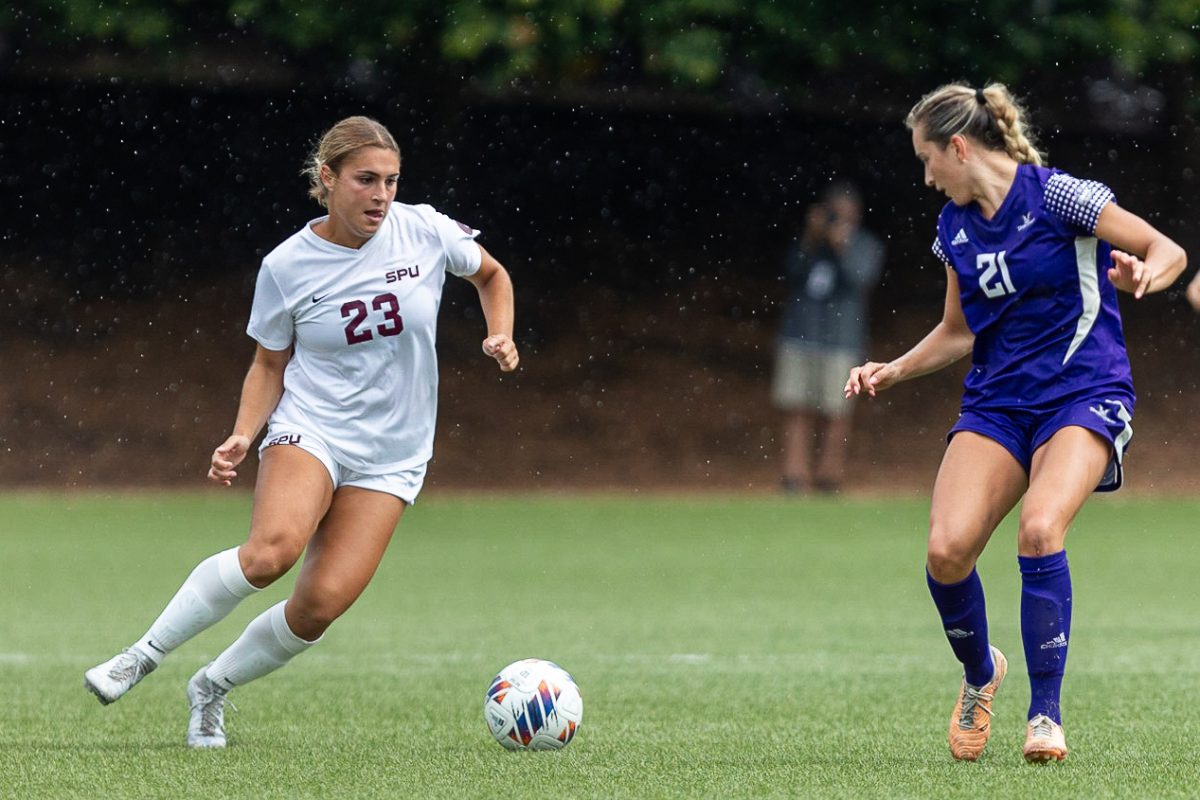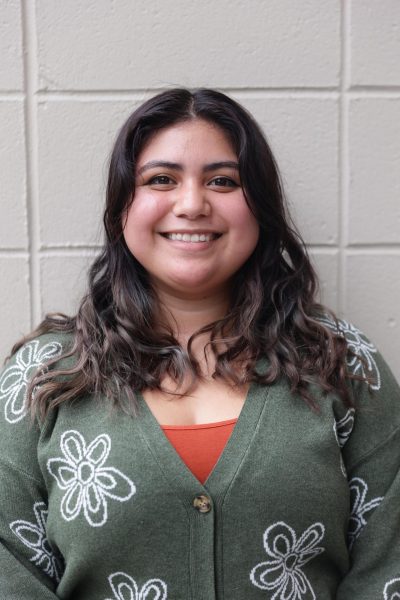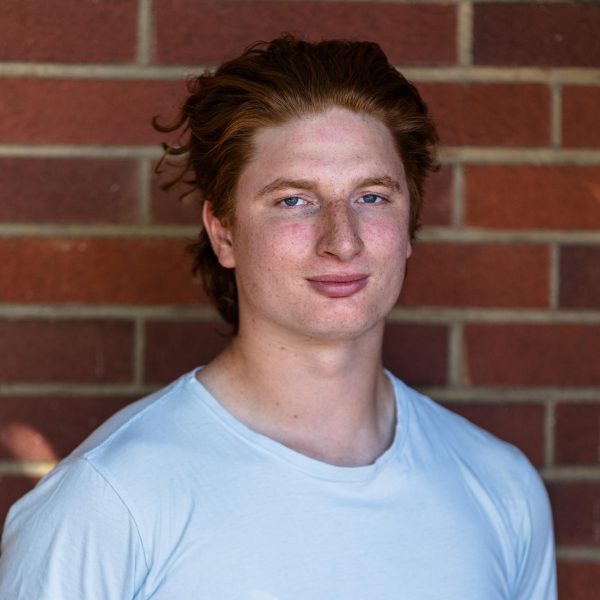Being a college student or an athlete is no easy feat, and at Seattle Pacific University, many live as both. The difficulty comes especially for freshmen who are learning to be a student and an athlete in college. Even for transfer students who know the sport and how to be student-athletes, a sense of newness can be daunting when entering a new sport or team.
It takes adaptability, bravery and dedication to be a student-athlete.
On the women’s soccer team, sophomore goalkeeper Mercedes Cullen commended her teammate striker Taylor Krueger, a sophomore nursing major who transferred from Saint Louis University, for her adaptability.
“She came in the fall as a transfer. She was GNAC [Great Northwest Athletic Conference] Newcomer of the Year. Having come from a different school, it’s hard to establish yourself, but that wasn’t a problem,” Cullen said. “She came in and made a huge impact on our team off the field and also on the field. She helped us get some good results.”
Kruegar’s successful transition highlights the potential for athletes to integrate and excel quickly and sets a strong example for incoming students.
A strong trait in sports is not only adaptability but leadership. Women’s volleyball head coach Jason Rhine noted two freshmen who shone as leaders: freshman setter Sophia Chambers and freshman libero Christina Lopez.
Rhine fondly remembers a defining moment of Chambers’ courage.
“Early on with Sophie, we came out from one of our first games, and I think the team and I were really impressed that she seemed very calm and not rattled out there at all,” Rhine said. “I talked to her after the game, and she talked about how she had been incredibly nervous at the start of the match. You wouldn’t have known it at all from the way she played.”
Chambers’ performance highlighted her potential. Lopez also made a significant impact by taking on a leadership role on the team.
“For Christina, we asked her to join our leadership team. This is a group of captains and other future leaders of the team, and her accepting that role spoke a lot to how we see her as a future leader in our program,” Rhine said.
Transitioning to collegiate sports, whether with or without prior experience, presents its own set of challenges and learning curves.
Head coach for women’s rowing, Caitlin McClain, acknowledged the different levels of experience each athlete who joins the rowing team brings in. She also noted how quick the turnaround is for students with no background in rowing to compete with people with years of experience.
“Everyone is coming to the sport from a different place and has different athletic backgrounds and different personality traits,” McClain said. “Rowing is very unique in that there’s a repetitiveness to it or a grittiness to it. You may not have all the physical characteristics, but if you have the mental, emotional and social things, it can really work out.”
In the 2024 Western Intercollegiate Rowing Association Championships, McClain noted that the Novice 4+ crew consisted of only freshmen walk-ons whose experience with rowing began in the fall quarter of 2023. It was the crew’s first major race, and while they did not win their heat, they performed well and showed their skills.
The Novice 4+ crew consisted of freshman Mari Ceesay, freshman Mia Vittori, freshman Jenna Casem and freshman Faith Akutagawa, with freshman Marian Ceesay serving as coxswain.
To qualify for the Novice 4+ heats, the crew members must be considered novices in college rowing, even if the athlete has prior experience from a club or high school team.
“They were riding against people that could possibly have four or five years of experience, and here they had five months of experience,” McClain said.
The journey of a student-athlete at SPU is a tale of bravery. They must gain the courage to step into new roles and the adaptability to thrive in unfamiliar environments. Whether they have years of experience or are new to the sport, these athletes demonstrate resilience and dedication, paving the way for success.
“This journey you’re on [in rowing] is really a long-term one, and people come to the table with different skill sets and different experiences,” McClain said. “Eventually, they come together and can become varsity level athletes by the time they are done.”


















































































